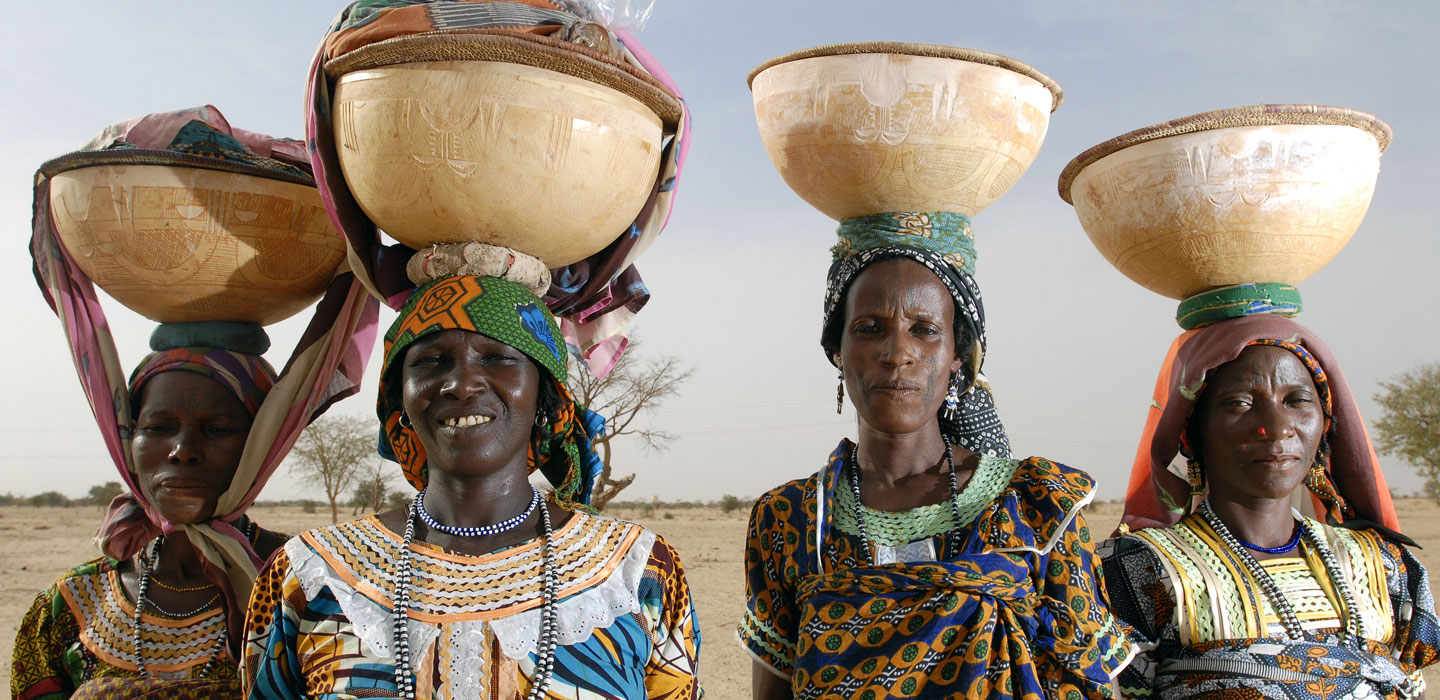Herramientas y Guías
Herramientas y Guías

Herramientas y Guías
Visualización del menú
Search Results Filters
Resultados de la búsqueda
Philippines: Country Technical Note on Indigenous Peoples’ Issues
Various sources estimate the population of indigenous peoples in the Philippines at 12-15% of the current national population of 108 million, or a total of about 16-17 million.
Indonesia: Country Technical Note on Indigenous Peoples’ Issues
Indonesia is comprised of 13.000 islands with a total area of 7 million km2. It has a total population of 273 million in more than 1.000 various ethnic and sub-ethnic groups with their own cultures and traditions.
Guidelines for Inclusive Agricultural Value Chains Development in Africa
These guidelines assess previous Agricultural Value Chains (AVC) development efforts across Africa, propose policies and strategies for developing AVC pathways, and identify the policy and institutional factors needed for successful implementation.
Cambodia: Country Technical Note on Indigenous Peoples’ Issues
Indigenous Peoples of Cambodia represent 24 different groups, who reside mainly in the upland forests, plains, and mountains of the northern and north-eastern provinces.
Viet Nam: Country Technical Note on Indigenous Peoples’ Issues
This report aims to provide the most recent information on the issue of Ethnic Minorities in Viet Nam in terms of the general situation, poverty reduction, impact of COVID-19, Government policies and programs as well as such as NGOs, ODA and IFAD in Viet Nam.
How to do Note: Designing for and monitoring resilience for vulnerable rural households
The RDMT aims at providing a framework for building the resilience of rural households and a step-by-step guide to designing for and monitoring the performance of resilience-building interventions during project implementation.
Myanmar: Country Technical Note on Indigenous Peoples’ Issues
Myanmar is one of the most ethnically and culturally diverse countries in the Asian region, and ethnicity is a complex, contested, and politically sensitive issue in the country where ethnic groups have long believed that successive governments of Myanmar manipulate ethnic groups for political purposes.
Bangladesh: Country Technical Note on Indigenous Peoples’ Issues
There are different and conflicting opinions, and until very recently, acute shortage of reliable data and statistics, regarding the population size of the different Indigenous Peoples in Bangladesh
Nepal: Country Technical Note on Indigenous Peoples’ Issues
Indigenous peoples of Nepal have been living in Nepal since time immemorial.
Nota de aprendizaje 2 del Departamento de Estrategia y Conocimientos del FIDA
This Learning Note showcases the methodology used for assessing the impacts of IFAD's investments on the livelihoods and lives of its project participants.
Sistemas alimentarios sostenibles y resilientes de los Pueblos Indígenas para una mejor nutrición
Esta guía digital ofrece directrices para el diseño, ejecución, seguimiento y la supervisión de proyectos destinados a mejorar la dieta y la nutrición de los Pueblos Indígenas.
Lao People’s Democratic Republic: Country Technical Note on Indigenous Peoples’ Issues
Lao People’s Democratic Republic (Lao PDR) is one of the countries with the largest number of different ethnic groups in the world. The history of these ethnic groups extends beyond human memory.
India: Country Technical Note on Indigenous Peoples’ Issues
Internationally, the ‘Scheduled Tribes’ (STs) of India are generally referred to as ‘Indigenous Peoples (IPs)’. However, the Government of India emphatically rejects equating Scheduled Tribes (STs) with IPs even while abiding by the operational directives of bilateral and multilateral agencies with regard to IPs while operationalising projects with their financial aid.
Notas practicas: Integrar el Sistema de Aprendizaje de Acción de Género (GALS) en las operaciones del FIDA
Esta nota ofrece una orientación práctica sobre cómo poner en marcha el Sistema de Aprendizaje Activo de Género (GALS) en los proyectos financiados por el FIDA.
Conocer la demanda del mercado: Cómo utilizar los debates de debates de grupos focales en el desarrollo de los seguros inclusivos
Comprender la demanda del mercado es un paso fundamental en el proceso de desarrollo de soluciones para satisfacer las necesidades de gestión de riesgos de la población rural pobre, especialmente en lo que respecta a los seguros.
Agricultural and climate risk insurance for smallholder value chains: Identifying common challenges and solutions
This brief identifies and describes the principal challenges, and outlines possible solutions that development programmes can support.
Guía práctica: Obtener el consentimiento libre, previo e informado en los proyectos de inversión del FIDA
Este documento ofrece al personal del FIDA, a los consultores y a los asociados en los países orientación práctica para solicitar el consentimiento libre, previo e informado durante el diseño y la ejecución de proyectos y programas financiados por el FIDA, de conformidad con las políticas y procedimientos de la institución.
Inclusión de las cuestiones de género en los seguros contra los riesgos agrícolas y climáticos: cómo mejorar el acceso de las mujeres rurales a los seguros
El programa de asistencia técnica del FIDA INSURED (Seguro para la resiliencia rural y el desarrollo económico) ha estado acumulando conocimientos sobre la forma de fortalecer el acceso de las mujeres productoras a los seguros contra el riesgo climático.
Caja de herramientas de comunicación del FIDA
La comunicación es clave para ayudar a la población rural pobre a construir una vida mejor. Y este conjunto de herramientas ha sido creado para ayudarnos a todos a cumplir con esta tarea.
Knowledge Management Resource Centre
A resource for IFAD staff and consultants, project staff and partners who want to learn more about KM.